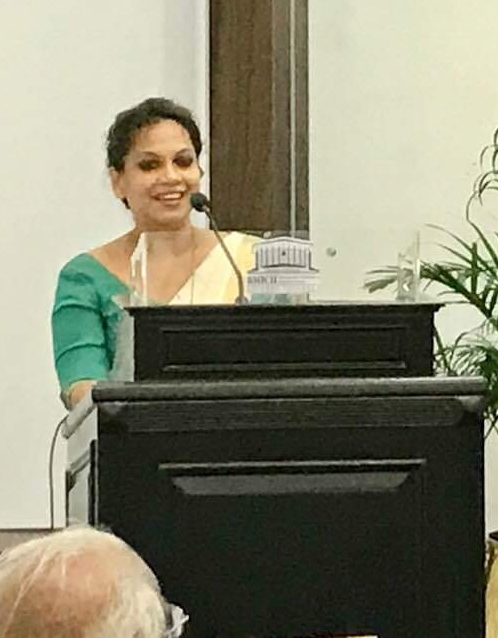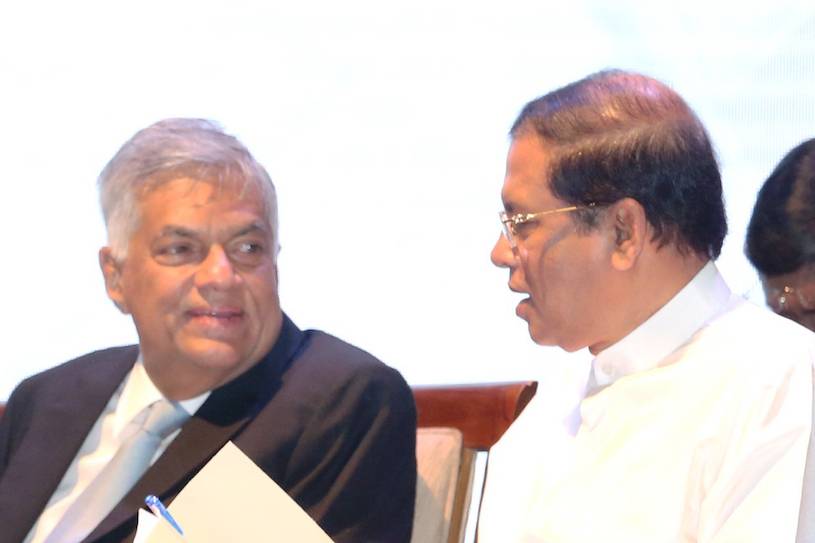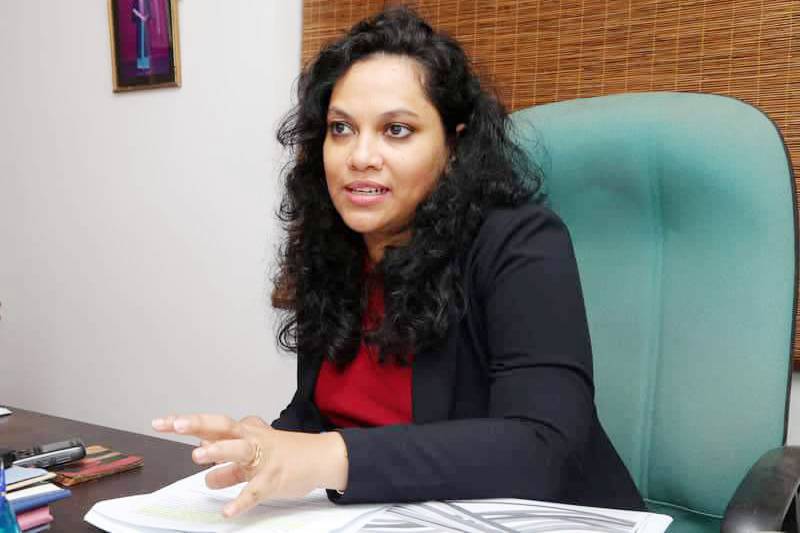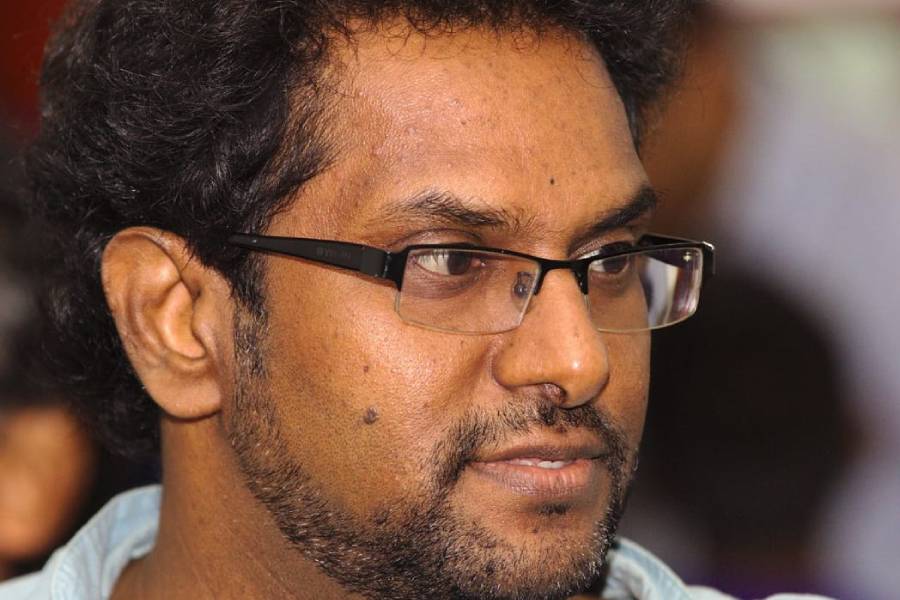- Details
යහපාලනය ඇතුළේ සංහිඳියාව නොවුණේ ඇයි? යන මැයෙන් ජූලි 07 දා පළ වූ මෙම ලිපියේ පළමු කොටසින් ‘යහපාලන’ ආණ්ඩුව විසින් සංහිඳියාව සංකල්පගත කරන ලද ආකාරය සහ සංහිඳියාවට ප්රවේශ වූ ආකාරය විස්තර කෙරිණ. මෙම කොටසින් පෙන්වා දෙන්නේ සංහිඳියාව පිළිබඳ ‘යහපාලන’ ආණ්ඩුවේ න්යාය පත්රය සහ ඒ සඳහා ස්ථාපිත කළ විවිධ ආයතන මගින් එම න්යායපත්රය ක්රියාත්මක කරන ලද ආකාරය පිළිබඳවය.
- Details
 Few months back, I asked my facebook friends what ‘Yahapalanaya’ meant to them. Posed at a time when the regime still had faint hopes of continuity, I was quite intrigued by the diverse range of reactions received, more negative than positive, which prompted me to share my own take on the ‘good governance’ performance by the ‘Yahapalanaya’ regime.
Few months back, I asked my facebook friends what ‘Yahapalanaya’ meant to them. Posed at a time when the regime still had faint hopes of continuity, I was quite intrigued by the diverse range of reactions received, more negative than positive, which prompted me to share my own take on the ‘good governance’ performance by the ‘Yahapalanaya’ regime.
- Details
Of the ‘Yahapalana’ pledges, the one least fulfilled, in my view, is its rhetoric in achieving national reconciliation. Four and half years into government, we witness increasing polarization of ethnic and religious communities in a deeply fragmented society. Needless to say that the recent terror attacks by Islamic extremists, although coming within a network of a global phenomenon, have caused considerable strain on relations between Muslim and other communities locally making national reconciliation an even more challenging aim to be achieved. These have resulted in aggravating fear and mistrust between communities leading to further polarization. However, it would seem that the tensions that were prone to manipulation and ignition were omnipresent in our society, even prior to the recent terror attacks, as was evident from the Digana riots that we experienced early last year. In understanding the failures to achieve reconciliation, or even part of it, in the backdrop of Yahapalana rhetoric, I would first reflect on the way in which reconciliation was understood and approached in the Yahapalana programme as a precursor to the failures that followed.
- Details
Ten years after the end of the war, terror has struck Sri Lanka again. The Easter Sunday tragedy and the events and issues associated with it bring national security to the center stage. The past few days, I have observed several efforts to understand and theorize the new phenomenon of terror and to find possible solutions and answers.
- Details
1997 වර්ෂයේ දී, රෝලන්ඩ් පැරිස් (Roland Paris) නමැති ජාත්යන්තර කටයුතු පිළිබඳ විශේෂඥයකු විසින් ලියන ලද (Peace Building and the Limits of Liberal Internationalism) (ජාත්යන්තර ලිබරල්වාදය සහ සාමය ගොඩනැගීම) නම් ලිපිය කියැවූ මා මතකයට ආවේ යහපාලන රජයේ ප්රජාතන්ත්රවාදී ප්රතිසංස්කරණවල පසුබෑමත් සමග ය.
- Details
ඉස්ලාමීය අන්තවාදීන් විසින් මෑතක දී එල්ල කරන ලද ත්රස්තවාදී ප්රහාර මාලාව ගෝලීය සංසිද්ධි ජාලයක ප්රතිඵලයක් වුව ද, දේශීය වශයෙන් මුස්ලිම් හා වෙනත් ප්රජාවන් අතර පැවති යහපත් සම්බන්ධතාවන්ට එමගින් සැලකිය යුතු අහිතකර බලපෑමක් එල්ල වී තිබේ. එම ව්යසනය රටේ ජාතික සංහිඳියාව සාක්ෂාත් කර ගැනීම වඩාත් අභියෝගාත්මක අභිප්රායක් බවට පත්කළ බව ද අමුතුවෙන් කිව යුතු නොවේ. මෙහි අනිටු ප්රතිඵලය ලෙස ප්රජාවන් අතර භීතිය හා අවිශ්වාසය වැඩි වී ඇති අතර, එය එම ප්රජාවන් තවදුරටත් බෙදා වෙන්කිරීමට හේතු වී තිබේ.
- Details
The most recent Report of the UN High Commissioner for Human Rights, Michelle Bachele, released on March 20th 2019 makes some vital observations regarding the progress made by Sri Lanka in the implementation of the Human Rights Council Resolution 30/1 in promoting Reconciliation, Accountability and Human Rights between October 2015 and January 2019.
- Details
‘යහපාලනය’ යන්නෙන් තමන් අදහස් කරන්නේ කුමක් දැයි මීට මාස කිහිපයකට පෙර මම මාගේ ෆේස්බුක් මිතුරන්ගෙන් ඇසුවෙමි. ඒ වකවානුව වනවිට තිබුණේ වත්මන් ආණ්ඩුව කුමන ආකාරයකින් හෝ පවත්වාගෙන යා හැකි තත්ත්වයකය. මා වෙත ලැබුණු පිළිතුරු බොහොමයක් ධනාත්මක පිළිතුරුවලට වඩා ඍණාත්මක පිළිතුරු වූ අතර, ඒවා මා තුළ ඇති කළේ දැඩි කුතුහලයකි. ඒ නිසාම මෙම ‘යහපාලන ආණ්ඩුවේ’ ක්රියාකාරිත්වය පිළිබඳව මාගේ අදහස් සටහන් කර තැබීමට අදහස් කළෙමි.
- Details
The UNHRC's duality and duplicity of treatment, holding responsibility and accountability for missing persons and number of casualties during Sri Lanka's war against Tamil Tigers during the 30-years of terror is apparent and highlighted.
- Details
නූතන ලෝකයේ ‘සංවර්ධනය‘ යන්න වටහා ගැනීමේ සහ ඊට ප්රවේශ වීමේ සංකේතාත්මක වෙනසක් පසුගිය දශක දෙක තුළ සිදු වූයේ යැයි කීම නිවැරදි නිගමනයකි. රටක සංවර්ධනය යනු එරට ජනතාවට රජයක් විසින් ලබාදෙන සුබසාධන කටයුත්තකට වඩා ජනතාවට ඇති මූලික අයිතිවාසිකමකි. 1986 වසරේ පැවති එක්සත් ජාතීන්ගේ මහසමුළුවේ දී සම්මත වූ සංවර්ධනයට ඇති මූලික අයිතිවාසිකම් පිළිබඳ ප්රඥප්තිය (UN Declaration on Right to Development) හරහා සංවර්ධනය යනු පූර්ණ ආර්ථික, සමාජීය, සංස්කෘතික හා දේශපාලනික ක්රියාවලියක් බවට නිර්වචනය වූ අතර, එහි මූලික අරමුණ ලෙස රටක සමස්ත ජන කොටස්වල සුබසිද්ධිය එරට සියලු පුද්ගලයන්ගේ සුබසිද්ධිය බවට පත්කිරීමේ වැදගත්කම අවධාරණය විය.
- Details
පුරා තිස්වසරක් පැවති කුරිරු යුද්ධය අවසන් වී වසර දහයකට පසුව ත්රාසය, භීතිය සහ අනාරක්ෂිත බව නැවත ශී්ර ලංකාව වෙලාගෙන ඇත. පාස්කු ඉරිදා සිදුවූ දරුණු ඛේදවාචකය සහ ඒ හා සම්බන්ධ සිදුවීම් නිසා පැනනැගුණු ගැටළුකාරී තත්ත්වයන් විසින් ජාතික ආරක්ෂාව නමැති මාතෘකාව නැවත කරළියට පැමිණ තිබේ. ත්රස්තවාදයේ නව මුහුණුවර හඳුනාගැනීමටත්, නව සංසිද්ධීන් විශ්ලේෂණය කරගැනීමටත්, ඒවාට නව අර්ථකථන ලබාදීමටත්, එ් සඳහා විසඳුම් සහ පිළිතුරු සපයා ගැනීමටත් දරන විවිධ ප්රයත්නයන් පසුගිය දින කිහිපය තුළ මම නිරීක්ෂණය කළෙමි.
Page 4 of 4







